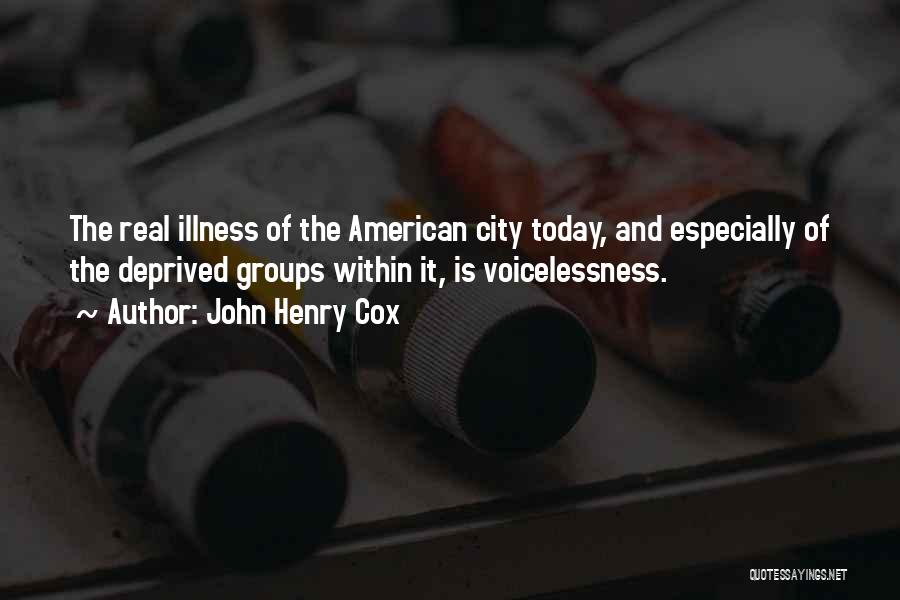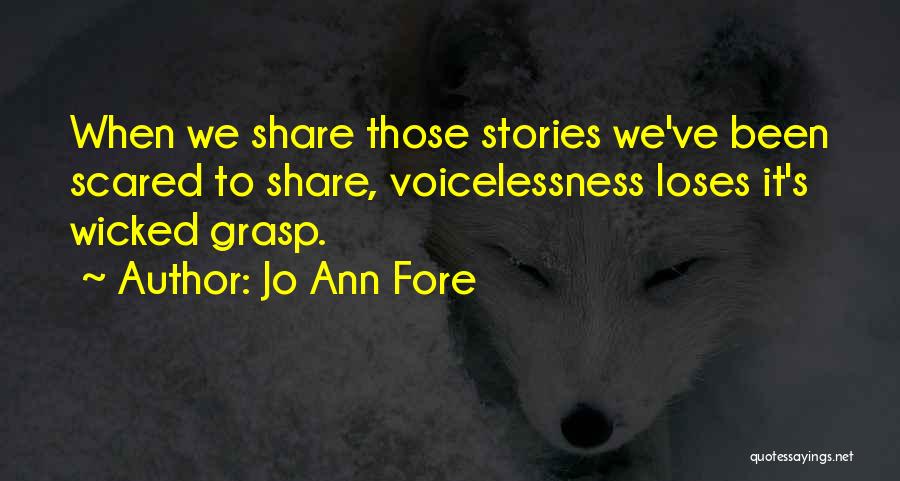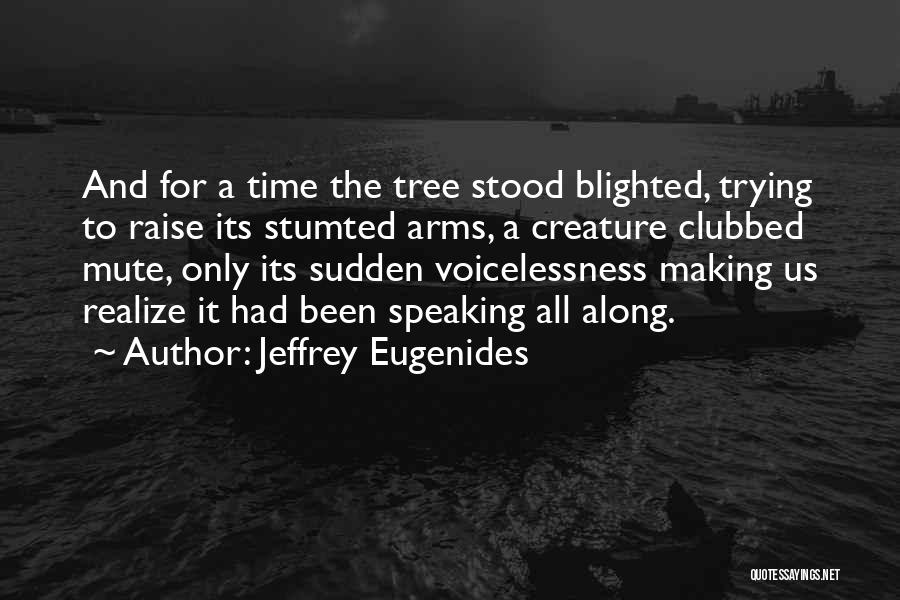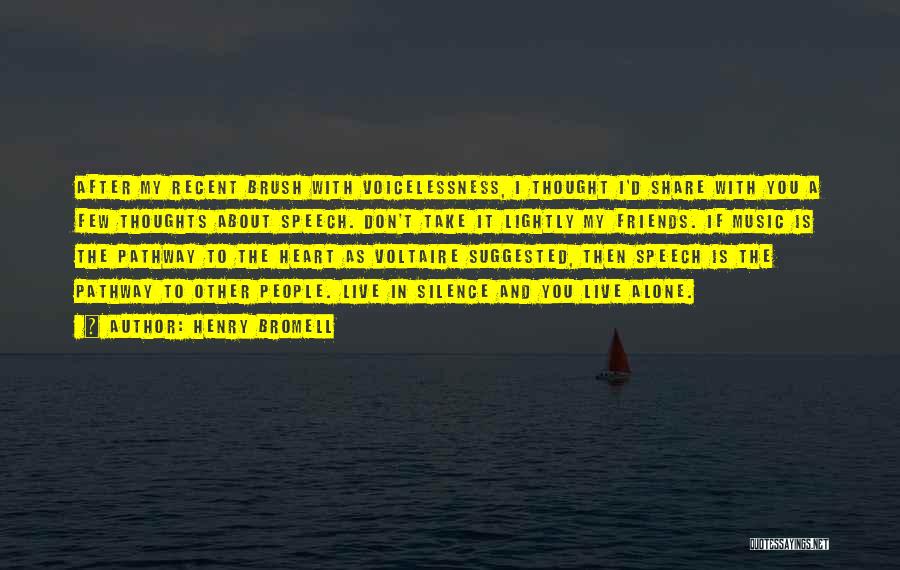Quotes & Sayings About Voicelessness
Enjoy reading and share 6 famous quotes about Voicelessness with everyone.
Top Voicelessness Quotes

The real illness of the American city today, and especially of the deprived groups within it, is voicelessness. — John Henry Cox

The night Junior stayed, my right to myself was taken from me in a way that had felt more final than ever before. Then the school had denied my rape - my word. The subsequent silencing and exile - misplaced shame - were the catalysts for me to finally break free of my mother's grasp and my voicelessness and do what I truly wanted, alone. I wished to prove myself as independent and valid and strong - to my mother, and to the world. I'd believed I had needed something huge and external that no one could deny was impressive, so I could show my family I was able - so they could finally know that I was strong.
Instead I had shown myself.
And it felt wonderful. — Aspen Matis

When we share those stories we've been scared to share, voicelessness loses it's wicked grasp. — Jo Ann Fore

And for a time the tree stood blighted, trying to raise its stumted arms, a creature clubbed mute, only its sudden voicelessness making us realize it had been speaking all along. — Jeffrey Eugenides

After my recent brush with voicelessness, I thought I'd share with you a few thoughts about speech. Don't take it lightly my friends. If music is the pathway to the heart as Voltaire suggested, then speech is the pathway to other people. Live in silence and you live alone. — Henry Bromell

While poor people mention having a lack of material things, they tend to describe their condition in far more psychological and social terms than our North American audiences. Poor people typically talk in terms of shame, inferiority, powerlessness, humiliation, fear, hopelessness, depression, social isolation, and voicelessness. North American audiences tend to emphasize a lack of material things such as food, money, clean water, medicine, housing, etc. — Steve Corbett





